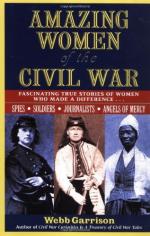|
This section contains 1,260 words (approx. 5 pages at 300 words per page) |

|
Civil War Tactician and Leader
Summary: On the morning of June 29, 1863, the streets of Gettysburg, Pennsylvania were deserted as Confederate Soldiers searched the town for shoes and other supplies. Little did Confederate General Henry Heth know that a corps of Union Cavalry, led by Brigadier General John Buford, was approaching the small city from the south.
On the morning of June 29, 1863, the streets of Gettysburg, Pennsylvania were deserted as Confederate Soldiers searched the town for shoes and other supplies. Little did Confederate General Henry Heth know that a corps of Union Cavalry, led by Brigadier General John Buford, was approaching the small city from the south. The decisions that Buford will choose to make over the next two days will later give Gettysburg the name, "the turning point of the Civil War for the Union Army" and leave Buford's name in the history books.
Founder of the Institution for Global Ethics, Rushworth M. Kidder, discusses the different types of courage in his book Moral Courage. He first divides them up into two categories, moral and physical. He defines physical courage using words such as bravery, dauntlessness, gallantry, and heroism. Kidder says, "Heroism, the common theme of these stories, often suggests an outsize, extreme, or...
|
This section contains 1,260 words (approx. 5 pages at 300 words per page) |

|


